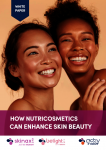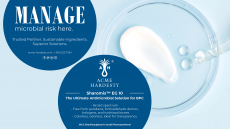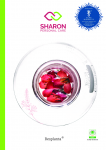Australian lobby group calls for greater regulation for nanotechnology
of nanotechnology personal goverments following the publication of
an inventory of all products containing nanoparticles and currently
available in the country.
The move comes in response to a comprehensive report from the Australian government that backs up the inventory - a move that could put the country ahead of any safety measures governing this area anywhere else in the world. The largest group of nanomaterials included in the inventory is metal oxides, which are used in a variety of personal care applications, most frequently in sunscreens. According to the environmental activist group The Greens New South Wales, a moratorium should be in place for all such consumer products containing manufactured nanomaterials, as well as providing safety guidelines for workers exposed to such materials. "The public is non the wiser to the risks of slapping suncream or shampoos containing nanoparticles on our families and sending people off to work in factories that handle this potentially toxic technology," said Lee Rhiannon, a member of the Australian parliament. In a statement, the lobby group said that, 'until adequate regulation is in place and to establish a regulatory body to assess the health and environment risk of nanomaterials.' The move by the lobby group aims to reinforce calls made last year by the Australian Department of Health and Aging for industry to voluntarily provide information on nanomaterials, which in turn resulted in the publication of the products inventory. However, the call did not apply to 'theraputic goods', which excludes many personal care goods that include nanomaterials, especially sunscreen products. The lobby group says that its call for a moratorium is putting pressure on the government to introduce a nano-specific safety assessment process that provides safety guidelines for individuals working with such materials, and includes clear labeling regulations for nanomaterials in products. Likewise, the group draws attention to advice from the Royal Society in the UK, that, given nanotechnology's potential to toxicity, nanomaterials should be subject to the most rigorous safety testing procedures and should also be treated as potentially hazardous materials. Some scientists believe that under current conditions determining the true safety of such products is a lottery for consumers. Backing up the beliefs of the lobby group, the author of the recently published Project on Emerging Nanotechnologies report, Andrew Maynard, believes that radical action has to take place in order to take the uncertainty out of the equation. In his report he states that the US government needs to spend a minimum of $100m over the next two years in targeted research into nanotechnology in order to fill-in the gaps in occupational safety for knowledge and to reinforce it with a strong science-based foundation. For the time-being, Maynard is suggesting the industry develops a 'control banding' that determines nanotechnology workplace risk, as a kind of compromise between inaction and banning all nanomaterials.












